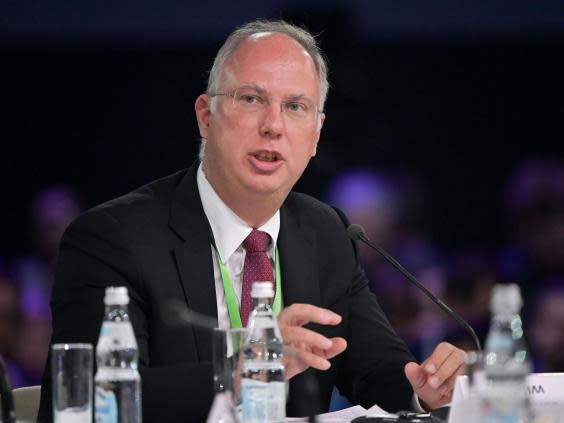Coronavirus: Russia touts first roll out of ‘game changing’ anti viral drug, despite doubts over efficacy

Russia is to begin the roll out of an antiviral drug used to treat Covid-19 patients next week, in a development officials claim will be a “game changer” despite strong doubts over its efficacy.
The Russian Direct Investment Fund (RDIF), the country’s sovereign wealth fund that invests in high-growth sectors of the economy, said the drug, named Avifavir, will be available in hospitals from 11 June with enough doses to treat around 60,000 people per month.
Avifavir is a modification of the influenza drug Favipiravir, first developed in the 1990s by a Japanese company that was later bought by Fujifilm, traditionally known for its photography products before moving into the healthcare sector.
RDIF head Kirill Dmitriev said the drug, which has yet to be approved by the US or the UK, successfully treated coronavirus patients during a clinical trial involving 330 people.
“We believe this is a game changer. It will reduce strain on the healthcare system, we’ll have fewer people getting into a critical condition, and for 90 per cent of people it eliminates the virus within 10 days,” Mr Dmitriev told Reuters.
The health ministry had given its approval for the drug’s use under a special accelerated process and manufacturing has already begun. Clinical trials are still ongoing but due to be concluded in around a week.
Japan has also been trialling the drug, known there as Avigan. But it has yet to be approved for use after clinical trails provided no solid evidence of its effectiveness.
RDIF, which has a 50 per cent share in the drug’s manufacturer ChemRar, funded the trials and other work with its partners, to the tune of around 300 million roubles (£3.4 million), said Mr Dmitriev, who explained that the costs to Russia were much lower because of previous development work conducted in Japan.
Mr Dmitriev claimed the new drug, which comes in tablet form, would allow people to spend less time in hospital and reduce the time they are contagious.

Once Russia’s own medical needs were covered, Mr Dmitriev said it would look to export the drug. Countries in the Middle East and Latin America had expressed an interest in acquiring it, he added.
Scientists have previously warned that there may never be a vaccine found for Covid-19. A number of drugs have been touted as potential treatments, although none have yet proven to be 100 per cent effective.
As of Monday morning, Russia had recorded over 415,000 cases of Covid-19 – the third highest number in the world – but logged just 4,855 deaths, according to official figures. There is significant doubt, however, over the accuracy of these numbers.
Additional reporting by Reuters
Read more
How criticism and counting change made Russia Covid stats believable


